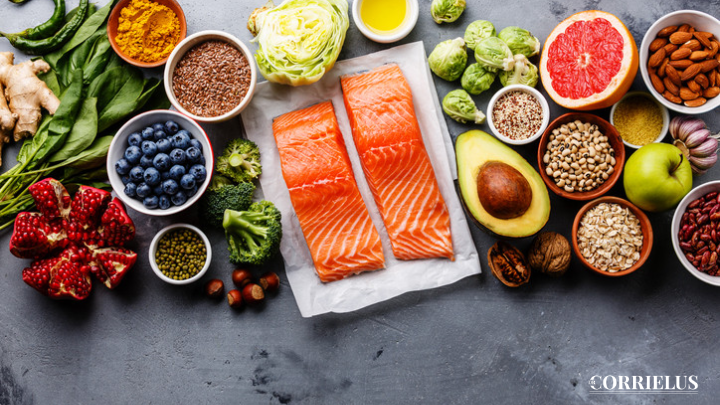Maintaining optimal cardiovascular health is essential for overall well-being and longevity. While regular exercise and a healthy lifestyle are important, the food we consume significantly impacts our heart health. In this article, we will explore dietary recommendations for supporting a healthy cardiovascular system. We will discuss the recommended food choices and those to avoid to achieve optimal heart health.
What to Include in a Cardiovascular-Healthy Diet:
Incorporate a Variety of Fruits and Vegetables
Including a diverse range of fruits and vegetables in your diet is crucial for heart health. These nutrient-dense foods are rich in fiber, vitamins, minerals, and antioxidants. Berries, leafy greens, citrus fruits, and vibrant vegetables like bell peppers and tomatoes are particularly beneficial. Aim to consume at least five servings of fruits and vegetables daily to support a healthy heart.
Choose Whole Grains
Opt for whole grains such as whole wheat, oats, quinoa, and brown rice instead of refined grains. Whole grains are packed with fiber, which helps reduce cholesterol levels and lower the risk of heart disease. Incorporate whole-grain bread, pasta, cereals, and other grains into your meals for a heart-healthy diet.
Opt for Lean Protein Sources
Prioritize lean protein sources like skinless poultry, fish, legumes, and tofu. These options are low in saturated fat and high in essential nutrients like omega-3 fatty acids. Omega-3 fatty acids have been shown to lower triglyceride levels and reduce the risk of heart disease. Fatty fish such as salmon, mackerel, and sardines are particularly beneficial due to their high omega-3 content.
Emphasize Healthy Fats
Fats are categorized as monounsaturated and polyunsaturated fats, which can help lower LDL (bad) cholesterol levels and reduce inflammation. Conversely, limit saturated and trans fats found in red meat, full-fat dairy products, and processed foods as they can raise cholesterol levels and increase the risk of heart disease.
Consider Plant Sterols
Foods fortified with plant sterols or stanols can help lower LDL cholesterol levels. Look for products like margarine, yogurt, and orange juice fortified with plant sterols to incorporate into your diet. These compounds work by blocking cholesterol absorption in the intestines, promoting heart health.
Foods to Limit or Avoid for Cardiovascular Health
Reduce Sodium Intake
High sodium consumption can contribute to high blood pressure, a major risk factor for heart disease. Minimize your intake of processed and packaged foods, as they often contain high amounts of sodium. Opt for fresh, whole foods and use herbs, spices, and salt substitutes to enhance the flavor of your meals.
Limit Added Sugars
A diet high in added sugars can lead to obesity, diabetes, and an increased risk of heart disease. Restrict your consumption of sugary beverages, desserts, candies, and processed snacks. Focus on obtaining natural sugars from fruits while minimizing your intake of added sugars for better heart health.
Avoid Trans Fats
Trans fats are present in many processed and fried foods, including fast food, packaged snacks, and commercially baked goods. These fats raise LDL cholesterol levels while decreasing HDL (good) cholesterol, thereby contributing to heart disease. Carefully read food labels and steer clear of products that list “partially hydrogenated oils” in the ingredients.
Moderate Alcohol Consumption
While moderate alcohol intake may offer some heart benefits, excessive alcohol consumption can increase blood pressure and contribute to various heart-related issues. Limit your alcohol consumption to moderate levels, which means up to one drink per day for women and up to two drinks per day for men.
A word from the doctor —
Maintaining a heart-healthy diet is crucial for optimal cardiovascular health. Focus on consuming a variety of fruits, vegetables, whole grains, lean proteins, and healthy fats while minimizing sodium, added sugars, trans fats, and excessive alcohol intake. By making these dietary choices, you can take significant steps towards promoting a healthy heart and overall well-being.
Schedule a consultation with Dr. Sanul Corrielus right away if you have questions about your heart health!



